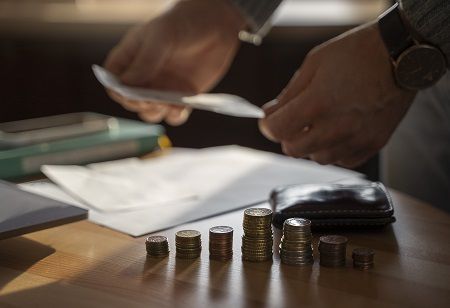
India Seeks 26% Tariff Exemption in Trade Deal With U.S.
- India seeks full exemption from the extra 26% U.S. tariff before the July 8 deadline to protect key sectors like textiles and gems.
- Negotiations focus on goods, digital trade, and services, with India open to limited concessions in sensitive areas like dairy and agriculture.
- The interim deal aims to boost bilateral trade to $500 billion by 2030 while addressing tariff and non-tariff issues.
India is advocating for a full exemption from the extra 26 percent tariff that the United States has placed on its products, as both parties hurry to finalize an interim trade agreement before July 8, reported PTI, citing sources familiar with the issue.
The reciprocal duty, introduced by the Trump administration on April 2, is suspended until July 9 due to a 90-day delay intended to provide space for negotiations. The baseline 10% tariff of the US, however, continues to be in effect.
India aims to remove both duties through the proposed agreement, which is anticipated to encompass goods, non-tariff barriers, and certain services such as digital trade. In exchange, New Delhi is willing to consider narrow concessions in delicate sectors—like agriculture and dairy—potentially via quotas or minimum import pricing.
Also Read: Bilateral Trade Deal to Move US Manufacturing to India: Ex-Trump Adviser
“We’re aiming to conclude the first tranche before July 8,” a government official told the news agency. “The goal is to provide duty relief, especially for India’s labour-intensive sectors like textiles, leather, and gems and jewellery.”
Commerce Minister Piyush Goyal engaged with US Trade Representative Jamieson Greer and Commerce Secretary Howard Lutnick in Washington earlier this week to expedite discussions. Discussions among the chief negotiators are anticipated to persist until May 22.
The US has shown interest in reduced Indian tariffs on areas such as electric vehicles, wines, petrochemicals, and agricultural goods including apples, tree nuts, and dairy products. Nonetheless, India maintains its opposition to the import of genetically modified (GM) crops while expressing willingness to accept non-GM feed products such as alfalfa hay.
The two nations intend to complete the initial phase of a larger bilateral trade agreement by autumn this year, to increase bilateral trade to $500 billion by 2030.
For four years, the US has been India's leading trading partner, with overall trade reaching $131.84 billion in 2024-25. India achieved a trade surplus of $41.18 billion with the US during that period—a disparity that Washington has noted consistently.
As India looks for duty exemptions, the US is pressuring New Delhi to tackle enduring non-tariff barriers encountered by American products in Indian markets. “There’s a strong intent on both sides to use the 90-day window to push this through,” the official added, leaving the door open for further rounds of discussion if needed.

.jpg)